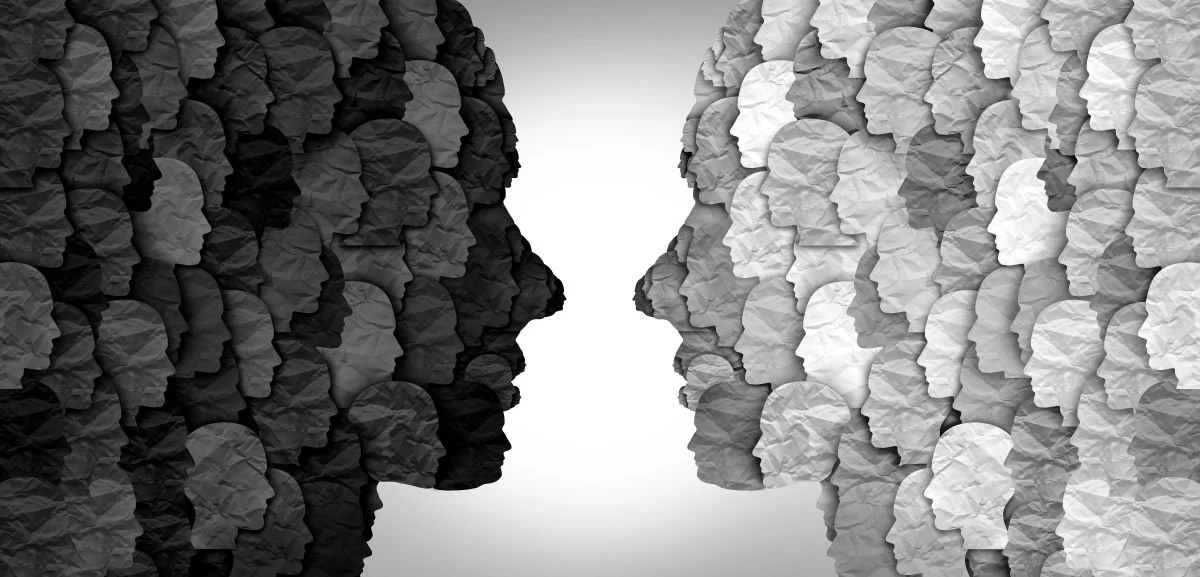Blogs
Home / Blog

Got Questions? We’ve Got Answers!
How Can I Stop Caring About What Others Think?
Caring about what others think is a natural human tendency. We all seek validation, approval, and acceptance in some form. However, when the fear of judgment or criticism starts to dictate your actions, decisions, and self-worth, it can become a limiting force in your life. Constantly worrying about others' opinions can prevent you from fully embracing who you are, pursuing your goals, and living authentically. It can keep you on a miserable mental hamster wheel of trying-to-keep-up-with the tsunami wave of input we are hit with every minute about what everyone else is doing. So the question is: how can you stop caring so much about what others think, or, can you notice when it’s happening and get off the mental, physical, and financial hamster wheel? YES. It is possible to shift your mindset and develop the confidence to prioritize your own beliefs and values over external judgment.
What qualifies as social media addiction?
Social media has become an integral part of daily life for many people, providing platforms for connection, entertainment, and information. However, for some, the time spent on social media platforms can spiral out of control, leading to negative consequences in their personal and professional lives. Social media addiction is a growing concern, and it can be difficult to recognize the tipping point when casual use becomes problematic. Understanding the signs of social media addiction and what qualifies as excessive use can help individuals reclaim their time, improve their well-being, and establish a healthier relationship with these platforms.
What is toxic comparison?
Comparison is a natural part of human behavior. We often compare ourselves to others to gauge our progress, understand where we stand, and motivate ourselves to improve. However, when comparison becomes excessive or harmful, it can lead to what is known as "toxic comparison." This form of comparison can erode self-esteem, increase feelings of inadequacy, and even foster resentment toward others. Understanding what toxic comparison is and how it manifests can help us avoid its negative effects and focus on building a more positive and self-compassionate mindset.
How is envy different than jealousy?
Envy and jealousy are emotions that are often used interchangeably in everyday conversation. However, they are distinct feelings that have different meanings and triggers. Understanding the difference between envy and jealousy is important because it helps us better navigate our emotional responses, cultivate healthier relationships, and cope with the discomfort of these challenging feelings. While both can be unpleasant and have the potential to harm us if not managed, recognizing the subtle nuances between them can guide us toward a more balanced emotional life, and towards attainment of what’s important to us.
Why can’t I deal with frustration?
Frustration is a natural emotion that everyone experiences from time to time. However, some people find it especially challenging to cope with it, even when faced with relatively small setbacks. If you’re one of those individuals who often struggles to deal with frustration, you're not alone. Understanding the root causes of this difficulty can help you manage your emotions more effectively and reduce the negative impact frustration has on your life.
How to handle political differences in relationships?
In today's polarized world, political differences can sometimes strain relationships, whether romantic, familial, or friendships. Navigating these differences requires patience, understanding, and a willingness to engage constructively. While it may feel daunting, addressing political disagreements thoughtfully can even strengthen your bond over time. Here are some strategies to help you manage political differences in relationships effectively.
Why can’t I be okay with being alone?
Struggling to be okay with being alone is more common than you might think. Many people feel discomfort, restlessness, or even fear when faced with solitude. This issue often stems from deeper emotional, social, or cultural factors. Understanding these underlying causes and learning how to embrace alone time can help you build a healthier relationship with yourself.
Train your brain to stop worrying about everything
In many ways, we’re wired to worry because looking for what might go wrong is a survival adaptation. Our brains don’t know that many of the things we CAN worry about don’t NEED to be worried about. Training your brain to stop worrying involves building new mental habits and developing tools to better manage anxious thoughts. Here are some practical steps you can take:
Can you fix your attachment style?
Your attachment style can deeply influence how you navigate relationships, both romantic and otherwise. Attachment styles—secure, anxious, avoidant, or disorganized—are shaped by early childhood experiences but can manifest throughout adulthood. While these patterns might feel permanent, the good news is that with self-awareness and effort, attachment styles can shift toward greater security.
What does it mean if someone is emotionally unavailable?
In relationships, emotional availability is often the cornerstone of connection, trust, and intimacy. Emotional availablity is also a part of healthy vulnerability. However, encountering someone who is emotionally unavailable can lead to confusion and frustration. But what does it really mean to be emotionally unavailable? Let’s dive into the concept and explore its causes, signs, and how to address it.
Why am I getting angry so easily?
Getting angry easily can be frustrating and sometimes confusing, and it can cause relational and personal damage. Anger is a natural human emotion, but when it feels overwhelming or frequent, it’s important to understand the underlying causes and learn how to manage it effectively. By exploring what triggers your anger and adopting healthier coping mechanisms, you can regain control and improve your emotional well-being. Here are some reasons why you might be experiencing heightened anger and actionable steps to address it.
How can I improve my EQ?
Emotional intelligence (EQ) is the ability to understand, manage, and express emotions effectively while also recognizing and working effectively with the emotions of others. High EQ is a critical factor in building strong relationships, excelling in your career, and maintaining overall well-being. Emotional intelligence can be improved with practice and self-awareness. Here are a few of the actionable steps to help you boost your EQ.
How to overcome being insecure?
Insecurity can feel like a heavy burden, weighing down your self-esteem and confidence, and it can wreak havoc on your experiences and how you pursue your goals, dreams, and relationships. Insecurity often stems from fear of judgment, past experiences, or involuntary comparisons to other people. The good news is that insecurity is not permanent, and with conscious effort, you can overcome it. Here are actionable steps to help you break free from insecurity and embrace a more confident version of yourself.
Do I need a therapist or am I overreacting?
It’s common to wonder whether your struggles are “serious enough” to seek professional help. Questions like, “Am I overreacting?” or “Do I really need a therapist?” often crop up when individuals are dealing with emotional or mental challenges. Self-reflection is important, and it’s also helpful to understand the situations where therapy can make a meaningful difference in your life. Of course, here’s some great news: you don’t need to be certain about needing to go to therapy. You can try therapy and see if it’s helpful to you . . . and it may surprise you in really fantastic ways. And here’s another piece of great news: if you are, in fact, “overreacting,” therapy can help you figure out why that is and how to respond differently in the future.
Why am I constantly worrying?
Worrying is a natural response to uncertainty or potential challenges, but when it becomes persistent and overwhelming, it can interfere with daily life and become an additional stress in and of itself. Many people who experience chronic worry dread the experience of worry as much if not more than what created it in the first place, especially if they experience related physical symptoms like nausea, headache, or fatigue. Constant worrying can stem from a variety of factors, ranging from personality traits to environmental stressors. Understanding the root causes can help you manage your worries more effectively and regain control over your experience.
What are coping skills?
Coping skills are strategies and techniques that individuals use to manage stress, emotions, and challenges in their daily lives. These skills are essential for maintaining mental and emotional well-being, especially when facing difficult situations. Everyone experiences stress differently, so finding the right coping mechanisms that work for you is key to building resilience and navigating life's ups and downs.
At what point should someone go to therapy?
Therapy is a powerful tool for self-improvement, healing, and navigating life’s internal and external challenges. However, many people hesitate to seek therapy because they’re unsure whether their issues are “bad enough” to warrant professional help; they look around and judge other people have “worse” situations or concerns, and this leads them to minimize, negate, or dismiss their own experiences and difficulties. Understanding when to seek therapy can help you take proactive steps toward mental and emotional well-being that everyone deserves.
Why do I constantly compare myself?
We live in a world where comparison has become a daily ritual, whether we realize it or not. Social media, professional environments, and even casual conversations often lead us to measure our own worth against others. While it's natural to evaluate ourselves in relation to others, constant comparison can have a negative impact on our mental health, self-esteem, and overall happiness. But why do we engage in this behavior so frequently? Let’s dive into some of the psychological, social, and cultural factors that drive us to compare ourselves to others.
How do I know what kind of therapist I need?
Choosing the right therapist can feel overwhelming, especially with so many different types of therapy and specializations available. The key is to match your unique needs, challenges, and goals with the expertise of a professional. By understanding your own situation and the different approaches therapists offer, you can make a more informed decision. This blog will help you think about a few important items— related to you and potential therapists— that are helpful to know when you start looking for a therapist for the first time, to change therapists, or for a new challenge.
What are behavioral activation skills?
Behavioral activation (BA) is a therapeutic approach that helps individuals identify and engage in activities that are meaningful and rewarding, particularly when they are struggling with low mood or depression. It is rooted in the idea that our actions can influence our emotions, and by intentionally changing our behavior, we can improve our mental health. Behavioral activation is often used in cognitive-behavioral therapy (CBT) and is supported by research as an effective tool for reducing symptoms of depression and anxiety.





















